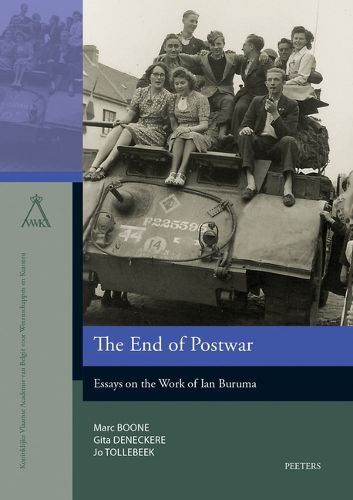Readings Newsletter
Become a Readings Member to make your shopping experience even easier.
Sign in or sign up for free!
You’re not far away from qualifying for FREE standard shipping within Australia
You’ve qualified for FREE standard shipping within Australia
The cart is loading…






In the autumn of 2015 the Dutch-English publicist Ian Buruma gave
direction to the thinker’s programme “The End of Postwar’, organised by
the Flemish Royal Academy. The programme was triggered by Buruma’s
publication Year zero: a history of 1945, which focuses on the
coming into being of a new global order in the aftermath of World War
Two. The birth of a welfare state and the European unification process
were its two most remarkable achievements. Both, however, have been
under constant pressure since the beginning of the 21st century. Two
workshops and a two-day symposium brought together thinkers from the
scientific, cultural and political worlds in order to reflect on the
central theme of "The end of postwar: which future for Europe?‘. This
collection of essays reflects the debates, which dealt with issues such
as the re-invention of the welfare state, the breach of the postwar
consensus, the durability of humanism and the role of a United Europe as
an answer to history.
$9.00 standard shipping within Australia
FREE standard shipping within Australia for orders over $100.00
Express & International shipping calculated at checkout
In the autumn of 2015 the Dutch-English publicist Ian Buruma gave
direction to the thinker’s programme “The End of Postwar’, organised by
the Flemish Royal Academy. The programme was triggered by Buruma’s
publication Year zero: a history of 1945, which focuses on the
coming into being of a new global order in the aftermath of World War
Two. The birth of a welfare state and the European unification process
were its two most remarkable achievements. Both, however, have been
under constant pressure since the beginning of the 21st century. Two
workshops and a two-day symposium brought together thinkers from the
scientific, cultural and political worlds in order to reflect on the
central theme of "The end of postwar: which future for Europe?‘. This
collection of essays reflects the debates, which dealt with issues such
as the re-invention of the welfare state, the breach of the postwar
consensus, the durability of humanism and the role of a United Europe as
an answer to history.